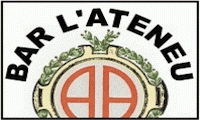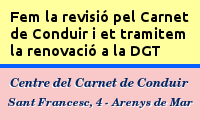Josep Casadevall: “Even if the amnesty is applied, it doesn’t erase past violations”
Josep Casadevall (Girona, 1946) welcomes us to his office, located in the heart of Andorra la Vella. Few in the country know the workings of the European Court of Human Rights (ECHR) as well as he does. A former judge and vice-president of the court, he speaks with caution and precision, choosing his words carefully. We ask him to help us understand why several Catalan-related cases have recently been dismissed and what to expect from the court’s imminent ruling on the 1-O trial.
—How is it that the court has dismissed several cases related to the so-called Catalan dossier in such a short time?
—I believe these cases were submitted around the same time and were therefore resolved in close succession. I wouldn’t go so far as to speak of a “Catalan dossier” in the sense that they’d all receive the same treatment.
—Let’s look at them one by one. First, the ruling deeming inadmissible the case brought by Josep Costa and Eusebi Campdepadrós for breach of parliamentary immunity. You said it was disappointing. Why?
—Because they alleged a violation of Article 10 of the European Convention on Human Rights, which guarantees freedom of expression—one of the most protected rights. It’s a broad right, albeit with limits, and the court may at times rule that it doesn’t protect certain forms of expression, such as hate speech. But here we’re talking about parliamentarians speaking within a parliamentary chamber. I would almost go so far as to say they can say whatever they want—within reasonable bounds, of course. Freedom of expression must be protected as broadly as possible.
—Soon after, the ECHR dismissed the claim of the father of the child killed in the 17-A attack.
—I don’t understand it. I can’t understand how a single judge could brush aside such a case—a terrorist attack, people dead, a catastrophe.
—The judge said there was no appearance of a rights violation.
—Exactly. That was the sole justification.
—Is that unusual?
—Very. Maybe the court could have ultimately rejected the case, but it should have delved into the merits and provided a reasoned decision, which a single judge cannot issue. At the very least, a panel of three judges or a chamber of seven should have reviewed it.
—The lawyers in the 17-A case are preparing a request for reconsideration. Is that viable? Are there precedents?
—None that I know of. In principle, a single-judge decision is final and not subject to appeal, as the judge himself states in a few lines. That said, I’d still advise submitting a request, especially if, as I’ve heard, new documents are being declassified. That would mean evidence that couldn’t be submitted initially might now support the original allegations. Even if the request is denied, it’s worth trying—given the importance of the case.
—Another case dismissed recently was that of the pro-Catalan language education groups. The same single judge, from Austria, handled it. Why was it the same one?
—Because he’s the appointed single judge. Judges can’t handle cases against their own countries, so each year the president of the court assigns single judges for inadmissibility decisions. Spain is probably assigned this Austrian judge, possibly along with another.
—How are these assignments made? Based on language, perhaps?
—That might be a factor. In this case, the Austrian judge had taught in Spain and Latin America…
—So that’s the explanation.
—Indeed.
—Why does this single-judge system even exist for dismissing so many cases?
—Ultimately, because of pressure from the states themselves.
—Pressure from states on the court?
—Not in a strictly legal sense. But they do exert influence economically and politically. The Strasbourg Court exists because states allow it to. If they ever decide otherwise, it will cease to exist. Meanwhile, the court has developed significant case law, interpreting and expanding the Convention. But states have tried to limit this—to reduce complaints and avoid condemnations that may carry political or moral weight. One of the most recent amendments to the Convention added the principle of subsidiarity and the margin of appreciation for states.
—To limit the number of admissible cases.
—Exactly. The court receives 50,000 to 60,000 applications a year. Only 4% or 5% are admitted. Do they want to cut that to 3%? Two?
—Is that why they created the single-judge mechanism?
—Yes. But the single judge has little knowledge of the case file. It’s first reviewed by experienced legal officers called non-judicial rapporteurs, who assess whether the case holds up. They prepare a draft decision and send it to the judge.
—Does the judge assign the rapporteur?
—No. The judge receives the rapporteur’s proposal and can only sign or reject it.
—Who selects the rapporteur?
—It’s a jurist from the division assigned to the state in question. Spain’s cases are handled by the jurists in its division.
—What does “division” mean?
—Groups of countries and their assigned jurists. Spain might share a division with Portugal or Andorra, for example.
—So these rapporteurs—likely Spanish in Spain-related cases—play a critical role.
—Does the single judge read the whole file? One would hope so, but I have my doubts. They probably read a summary and the draft inadmissibility decision. They can sign or reject it. If they reject it, it goes to a three-judge panel or a chamber, which must give a reasoned ruling.
—What profile do these rapporteurs have?
—Usually, they’re Council of Europe officials with considerable experience.
—Could the Spanish nationality of rapporteurs lead to bias in dismissing Spanish cases?
—I see where you’re going, but you haven’t mentioned the national judge yet.
—Does the single judge consult the Spanish judge when deciding on admissibility?
—In principle, no. But in practice… I’d be surprised if the judge didn’t at least consult their Spanish colleague.
—In this case, that’s María Elósegui.
—Even if just to ask: “What’s this about? Seventeen dead, a van attack, an imam, possible links to the intelligence services…” It’s no minor issue. I dare say the Spanish judge was aware of this case. But beyond that, we’re speculating.
—All we know for certain is that the case was dismissed.
—Yes. The single judge could have admitted it—but didn’t.
—Can we infer anything about the future of the 1-O prisoners’ cases from these dismissals?
—I wouldn’t draw a connection. The claims and alleged violations differ. The Mesa members’ case focused on Article 10, whereas the prisoners’ cases involve Article 5 (liberty), 6 (fair trial), 8 (family life), and others.
—Does the amnesty, combined with pardons and repeal of sedition, invalidate the prisoners’ claims?
—I doubt it. Their status as victims remains. Even if the amnesty is applied, it doesn’t erase past violations—if they occurred. It might be considered a corrective measure, but doesn’t compensate for years already spent in prison. The court will have to assess this.
—Could the repeal of sedition or the amnesty be seen as reparation?
—Possibly. It might indicate that the state acknowledges some wrongdoing, which the court could interpret as partial redress. When the court finds a violation, it asks the state to take steps to repair it and prevent recurrence—though it rarely specifies how. Implementing legislative changes can be required.
—Who ensures that states comply with judgments?
—The Committee of Ministers of the Council of Europe. The court itself has no enforcement power.
—What can the Committee of Ministers do if a state fails to comply?
—They apply political pressure. At their periodic meetings, they ask: “Spain, you have eighteen pending rulings; France, you have twenty-five. What’s the status?” States provide updates—draft laws, pending budgets for compensation, etc. Most rulings are eventually enforced, barring very politically complex cases.
—Is it a matter of political and moral reputation?
—Exactly.
—In the 1-O prisoners’ cases, is a ruling more likely on procedural grounds—such as the lack of a legally assigned judge or doubts about impartiality?
—Possibly. These are valid grievances that have been raised.
—All of the plaintiffs also allege a violation of Article 18, concerning abuse of power by the state. Could that claim succeed?
—It’s rare. Only in very flagrant cases where the Convention is applied in a clearly negative way—for example, lawfare.
—If the court finds that they weren’t judged by a legally assigned judge, could that lead to retrial?
—The court can’t annul convictions. Spanish law allows for the possibility of reviewing final judgments following an ECHR condemnation, but it’s not automatic. The affected person must request it. It’s intended for cases where trials were not fair under Article 6.
—Given where the procedure stands, could we expect a ruling within months—possibly this year?
—It’s possible, but I can’t say for sure without knowing the procedural status. They may be in the judgment drafting phase.
—How does that phase unfold?
—It’s lengthy. Legal officers draft the initial text. There are preliminary deliberations and a provisional vote where judges express their views. Then comes the final vote. Dissenting judges can write separate opinions—either dissenting or concurring.
—Does the Spanish judge have much influence at this stage?
—Not anymore. Unlike in the single-judge stage, decisions now rest with a chamber of seven judges plus three substitutes. The case is already assigned to a legal team and likely has a designated rapporteur.








